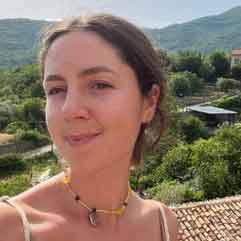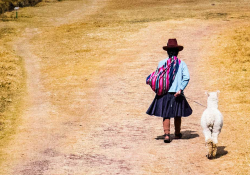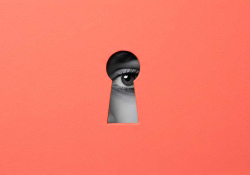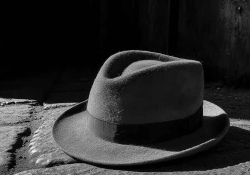Day of the TASLA Dead
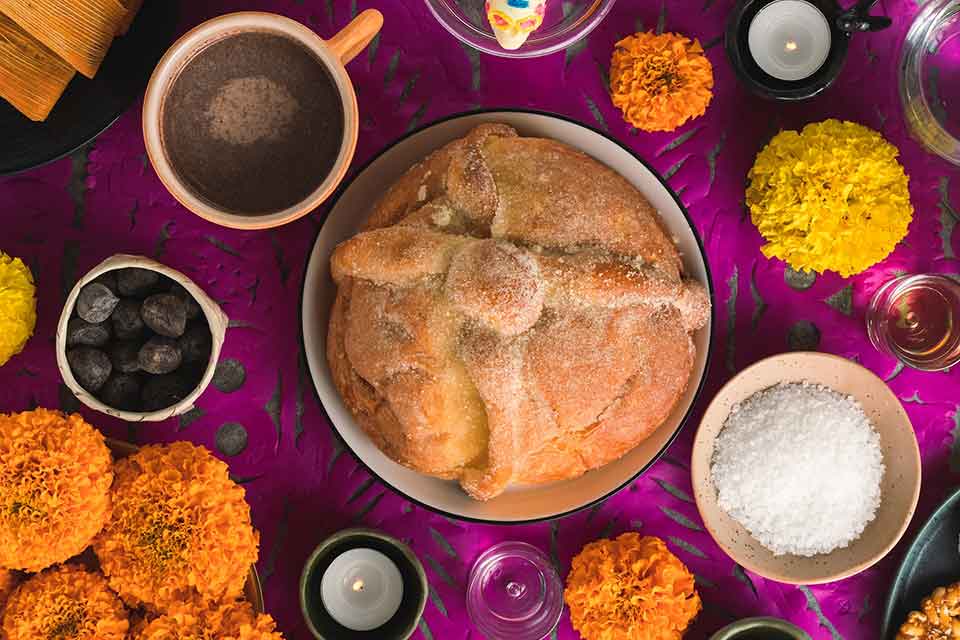
It’s Australia’s first Halloween under the TASLA government. But what will it mean to Recharge a loved one?
Evana is cooking chicken for the tamales. It is a process of resurrection. There is no smell of chicken. The wooden spoon, as she presses it into the sizzling meat, makes a squeaking sound. Evana leans forward and holds her nose above the pan. She sniffs the steam: it smells like plastic, melting. Evana doesn’t know whether to throw the chicken out or persevere. She’s already made the salsa verde, which waits, refrigerated and acidic, in a metal bowl. She doesn’t like wasting food, but more importantly, she isn’t going to let her children suffer through inedible tamales. She is unsure if she can still call them tamales.
* * *
The telephone rings. Stirring the wooden spoon through the acrylic mixture with one hand, she pulls the mobile from her denim back pocket with the other. She regards the name on the face of its screen: Sonia Neighbor. “Sonia?” she answers.
“Evana. Your family is buried, yes? Is your family buried?”
Evana peers through the kitchen window to the house next door, squinting as she searches for the figure of her elegant, scholarly neighbor. She sees nothing but the white walls of the house and the windows, unobscured by curtains, which are black despite the daylight and unlit, making the house appear hollow, like a rotting cavity. In the front yard, tied to the pickets of a wooden fence that Evana must crane her neck to see from her kitchen, is a white banner with the word TASLA printed across it in red letters. Evana straightens her back and looks sullenly at her chicken.
She sees nothing but the white walls of the house and the windows, unobscured by curtains, which are black despite the daylight and unlit, making the house appear hollow, like a rotting cavity.
“Yes.”
“Nearby?”
“Yes.” Evana wonders if she’s supposed to elaborate.
“In Mona Vale, at the cemetery there?”
“Exactly, yes.”
“How wonderful,” Sonia sings. “That is convenient. My family, you see, my family were cremated. Cremated, yes, not buried. They’re here, on the mantle, in brass urns. Now, it’s not like I had them cremated after the monarchy became defunct, it’s not like that, Evana. Back then it was a normal preference, like how my Tommy prefers apple juice over orange juice. Do you see what I mean? Do you see my dilemma?”
Evana watches Sonia’s house, waiting for movement. “Tonight,” she says, “will be difficult. This is what you mean?”
“Yes!” her neighbor gushes, “very difficult. Doug’s family, too. All cremated. God, Evana, I feel so stupid. It’s going to be my Tommy’s first TASLA Halloween—no, no, Australia’s first TASLA Halloween—and what do I have to show for it? A couple of jars? I swear, Evana, if only I listened to my sister and stuck my parents in a nice cemetery. Look, Evana? Could you do something for my Tommy? Neighbor to neighbor?”
The smell of fake chicken is filling Evana’s entire house. She unlatches the kitchen window and pushes it open, letting synthetic smell waft out onto her neighbors’ lawn. She picks up the bowl of salsa and flicks the contents into the sink, watching the gooey cubes of tomatillo slide toward the drain.
“Of course, Sonia.”
“Could we come with you, Doug and Tommy and I, to the cemetery tonight? You see, we’d like to see you Recharge your parents.”
* * *
Evana drags a chair from the dining room to the ofrenda at the side of the living room and sits down. She is wearing a long, floral dress. Her thick, brown plaited hair, entwined with strands of gray as if age itself were settling in the home of her body, falls over her shoulders. Among the altar of photographs and flickering candles is a cardboard box, no bigger than a jar of moisturizer, which was left on the doorstep a week ago.
The same cardboard box was left on the doorstep of every house in Australia. On the news, people had compared sizes, complaining that some were bigger than others, demanding that the TASLA government send them another one. Evana read articles about families who threw their boxes into the bin without opening them. “If you use these things,” an article quoted from a father in the western suburbs, “you abandon your family. You leave them for dead!” The journalist wrote something about sensitivity as if it were a synonym for ignorance. The man has since been reported missing.
Evana can’t bring herself to open the box. She already knows what its contents look like: years earlier, when the United States, and then the United Kingdom, came under the TASLA government, the image of the Recharger was broadcast across the globe endlessly. The Recharger haunts her dreams, flicking through them like a wasp.
Evana’s husband, Juan, whistles a tune while he walks into the living room. He’s wearing a black blazer with a marigold tucked into its lapel. “I’m sure it won’t bite,” he says, knocking on the cardboard box with accordion knuckles. “Open it, Evanita. Get it over and done with.”
Evana pushes the box away. “Sonia is bringing her family to the cemetery to watch.”
“Watch what?”
“Watch us.”
Juan pulls over a chair and sits beside his wife. “As long as they don’t make us share our tamales.”
Evana scoffs. “There will be no tamales. None of that TASLA-grade, solar-fed nonsense. If I wanted to poison my children, I would do it with cyanide.”
“If we poisoned our children,” Juan whispers, looking not at his wife but at the cardboard box, “we could Recharge them.”
Evana stands up and glares down at Juan, scowling. “If we poisoned our children, there would be no one left to remember us.”
* * *
In the boot of her electric car, Evana packs a Tupperware container of marigold petals, wax candles, and loaves of pan de muerto wrapped in clingfilm. She places the cardboard box next to it. While her two children climb into the back seat, she hears the toot-toot of her neighbor’s car unlocking. Sonia appears on her driveway, and then Doug, who, while he walks, inspects something on the collar of little Tommy’s shirt. “Evana!” she bellows, like a teacher calling the roll, “lead the way, okay? We are right behind you.” Her black hair is pinned up to reveal a sweeping neck, dangling from which is a red T pendant. She wears petite, wire-framed glasses and a delicate watch, whose ticking face hides at the pulse of her wrist.
Gleaming at Evana and Juan, Sonia notices something, squints as if to confirm her discovery, and then turns to her husband and scolds him. “What did I tell you? What did I tell you, Doug? Men do wear flowers to this sort of thing. Jesus.” Flicking her head away, she says, “Evana: I insisted he stop by the florist this afternoon, I’m so sorry. You don’t have any spare flowers, do you? We want this experience to be authentic.”
Upon giving Doug and Tommy each a marigold, Evana and Juan drive away from their house toward the cemetery, Sonia’s face beaming in their rearview mirror. In the dusk, Barrenjoey Road glows with the electrical flashes of car headlights, the slow, glittering flow of traffic winding its way to the Mona Vale General Cemetery.
The kids nod nervously; they’d heard rumors about people overseas fainting when they Recharged their family members.
They find a parking spot and plug their vehicle into one of the many silver, cylindrical charging stations, which line the sidewalk like soldiers. While they wait for their neighbors to park, Evana distributes the Tupperware goods to her family. “Tonight,” says Evana, standing before her children, “you are here to remember your abuela and abuelo. You are not here to meet them, no matter what the TV was saying. Do you hear me? Ignore what you see, focus on what you remember.” The kids nod nervously; they’d heard rumors about people overseas fainting when they Recharged their family members and wondered if their Mami and Papi would faint, too.
* * *
The cemetery is lit by solar-powered stadium lights, illuminating the graveyard like a supermarket, the rows of graves like aisles of groceries. Mariachi ballads shudder through overhead speakers, sounding not like music but a series of technological utterances. “This must be so special,” marvels Sonia, marching behind her neighbors, “for you and your cultural heritage, Evana. Isn’t it so considerate of the president to do this for Mexican folk like you? I get it was a political maneuver, no, I get it. Campaigns as big as President Mosk’s need to appeal to every ethnicity. It’s vital, yes. For inclusivity. Tommy,” she turns around, “Tommy, look at all of this Mexican culture.”
Mariachi ballads shudder through overhead speakers, sounding not like music but a series of technological utterances.
“I wish,” says Evana, twisting her body to face Sonia, “that the president allowed us to do this on the second of November.”
“But today is Halloween.”
“Exactly. Today is not El Día de los Muertos.”
The group arrive at the tombstones of Evana’s mother and father. They are the only buried relatives she has in Australia; the rest are buried in Mexico, with decades and decades of ancestors. Evana, Juan, and their children go about adorning the graves while Sonia and her family watch silently. Evana whispers a story from her childhood, recalling details about her parents fondly.
“When are they gonna do the recharging thingy?” asks Tommy, who up until now was fidgeting impatiently with his marigold, crumpling the petals. The flower is brown and limp in his fist.
Juan hesitantly picks up the cardboard box from the grass. He peels away the flaps. Sticking his fingers inside, he retrieves a folded piece of paper. He unfolds it and reads its contents aloud:
Instructions
Use of Recharger is compulsory. Only to be used on the 31st of October. Failure to comply will result in large penalties and possible deportation.
1. Remove Recharger from packaging. Fasten the Recharger into soil adjacent to tombstone. Turn it on by pressing the green button. Each claw will radiate its own individual electromagnetic current into the soil. The Recharging of a loved one will take between 15–30 seconds.
2. Upon the flashing of the red light, a temperature signature is detected, and interaction with the loved one can commence.
3. Upon the flashing of the blue light, the temperature signature is considered too weak to interact with, and the Recharger will turn off automatically.
WARNING: the presence of materials/objects that conduct electricity must be removed from the site or the loved one will fail to Recharge.
Not suitable for children under the age of three. TASLA does not endorse claims of immortality and is not responsible for damaged cemeteries.
Happy Halloween. President Mosk.
Juan passes the slip of paper to Evana, who skims through it and nods once in surrender. Juan fishes the Recharger out from its box and rips open the plastic packaging in which it is wrapped. The process reminds Evana of unwrapping a chocolate Easter egg. As instructed, he pushes the carbon fiber claws into the soil next to his mother-in-law’s grave. All that appears above the grass is the round, black puck.
“You do it,” he nudges Evana.
Gripping at her daughter’s pudgy hand, Evana bends down and presses the green button. Three seconds pass. Seven. Then twelve. After sixteen seconds, a shadow appears above the puck, as tall as a human. It sucks the fluorescent light of the cemetery into itself, gorging on its own darkness, swelling and morphing. The shadow flickers. The red light flashes. Evana’s mother is there.
The body of her mother is not a hologram. It is a vessel of flesh, pale. Evana reaches forward and touches its shoulder. It is cold; it disintegrates like asbestos beneath her fingertips, as if her own hands are sandpaper and her mother a plank of wood. She has an urge to blindfold her children, to shield them from the sight of their sterile, waxy abuela. It is like their abuela was retrieved from a refrigerator.
Suddenly, their abuela is a mortal woman. After all those years of remembering her in their memories and stories, of watching her live on through song, and food, and photographs, she is suddenly and irreversibly dead.
Evana cries out.
“She’s beautiful,” whispers Sonia.
“I kept her alive for so long,” Evana says softly. “This is no resurrection. This is murder.”
Sonia cocks her head. She surveys the pallid woman before her, the gruesome blue of her skin, the slick sludge of her hair.
“I would do anything,” she says, “to see my mother like you are seeing yours. Why, Evana, are you so ungrateful?”

